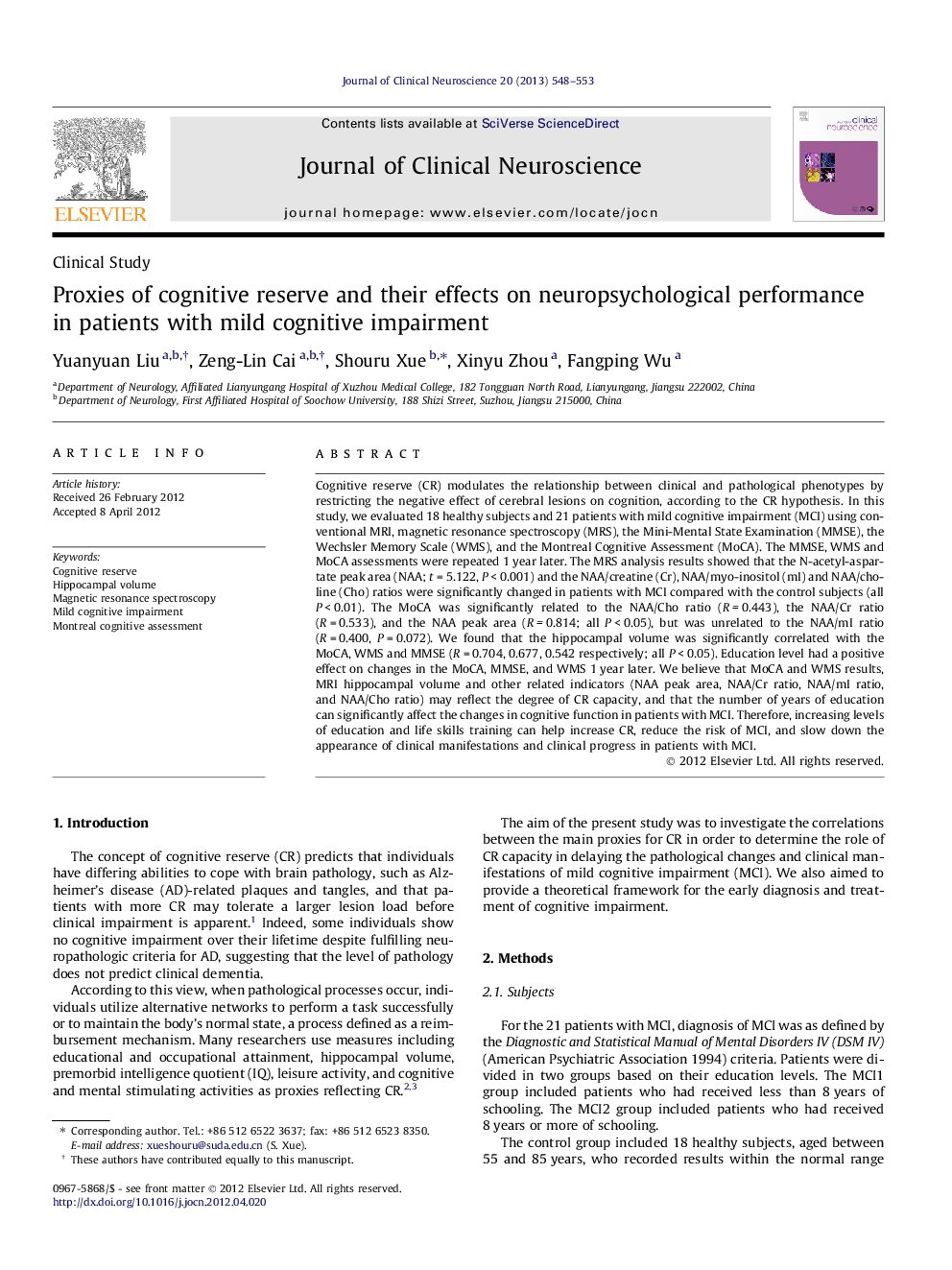| Article ID | Journal | Published Year | Pages | File Type |
|---|---|---|---|---|
| 3060262 | Journal of Clinical Neuroscience | 2013 | 6 Pages |
Cognitive reserve (CR) modulates the relationship between clinical and pathological phenotypes by restricting the negative effect of cerebral lesions on cognition, according to the CR hypothesis. In this study, we evaluated 18 healthy subjects and 21 patients with mild cognitive impairment (MCI) using conventional MRI, magnetic resonance spectroscopy (MRS), the Mini-Mental State Examination (MMSE), the Wechsler Memory Scale (WMS), and the Montreal Cognitive Assessment (MoCA). The MMSE, WMS and MoCA assessments were repeated 1 year later. The MRS analysis results showed that the N-acetyl-aspartate peak area (NAA; t = 5.122, P < 0.001) and the NAA/creatine (Cr), NAA/myo-inositol (mI) and NAA/choline (Cho) ratios were significantly changed in patients with MCI compared with the control subjects (all P < 0.01). The MoCA was significantly related to the NAA/Cho ratio (R = 0.443), the NAA/Cr ratio (R = 0.533), and the NAA peak area (R = 0.814; all P < 0.05), but was unrelated to the NAA/mI ratio (R = 0.400, P = 0.072). We found that the hippocampal volume was significantly correlated with the MoCA, WMS and MMSE (R = 0.704, 0.677, 0.542 respectively; all P < 0.05). Education level had a positive effect on changes in the MoCA, MMSE, and WMS 1 year later. We believe that MoCA and WMS results, MRI hippocampal volume and other related indicators (NAA peak area, NAA/Cr ratio, NAA/mI ratio, and NAA/Cho ratio) may reflect the degree of CR capacity, and that the number of years of education can significantly affect the changes in cognitive function in patients with MCI. Therefore, increasing levels of education and life skills training can help increase CR, reduce the risk of MCI, and slow down the appearance of clinical manifestations and clinical progress in patients with MCI.
